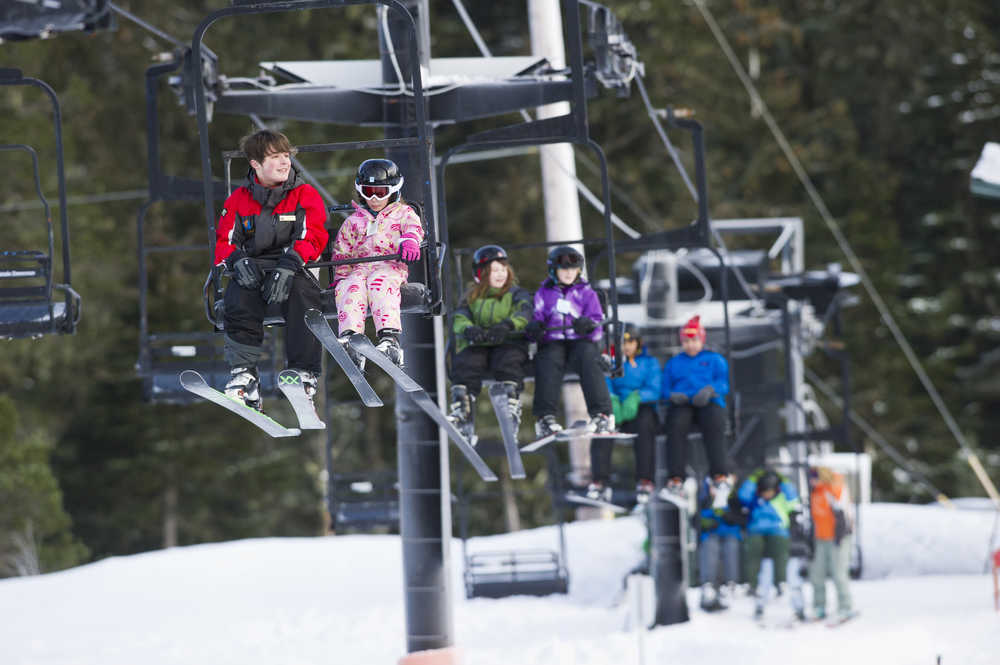In mid-October, about a month and a half before Eaglecrest Ski Area opened for the winter, General Manager Matt Lillard was optimistic about the season despite lackluster season-pass sales. Now, almost two months into the season, Lillard hasn’t let go of that optimism thanks in part to two record-setting days.
Heading into this season, Eaglecrest had sold 35 percent fewer season passes than it had the previous season. Typically, season passes account for the majority of the ski area’s revenue. All hope was far from lost, however; as Lillard explained at the time, daily-pass sales could easily make up for the lost revenue.
“The bottom line can be just as good,” Lillard told the Empire in October.
Just after Christmas, Eaglecrest got the gift Lillard had been hoping for. On Dec. 26, the ski area set a new record for number of daily passes sold in a single day. Having sold a total of 447 daily passes, Eaglecrest broke the previous 410-pass record, set in 2012. The very next day, the ski area broke the record again, selling 518 daily passes.
“We had some great snow over the holiday break, and it equated to some great days on the mountain — record-setting days,” Lillard said.
During that weekend, Eaglecrest made about $25,000 in daily-pass sales. Still, these weren’t the busiest days Lillard has seen. Normally the greatest contingent of skiers and snowboarders consists of season-pass holders. That was not the case on Dec. 26 and 27. This is likely because people who decided not to buy season passes again after last year’s terrible season are now buying daily passes whenever the snow is good, according to Lillard. And as far as Eaglecrest is concerned, this isn’t a bad thing.
If used frequently, the season pass is more economical for the skier or snowboarder than it is for the ski area. If instead the same skier or snowboarder bought daily passes frequently, the ski area comes out ahead. This was what Lillard was hoping this would be the case this year, and for a while it seemed as though it might be.
“After the break, we were catching up to previous years, so it was looking good,” he said. “When we do have snow, what we thought would happen is happening.”
The problem, though, is that since then the weather “has turned a little south on us,” Lillard said. Temperatures have risen. Mud and sticks are starting to poke through snow toward the base of the mountain. And as Lillard says frequently, it all comes down to the snow. Still, he is holding onto the hopeful disposition with which he entered the season.
“We’re 37 days into a 90-day season,” he said. “It’s really hard to tell how everything will turn out, but we still have a very positive outlook for the season.”

